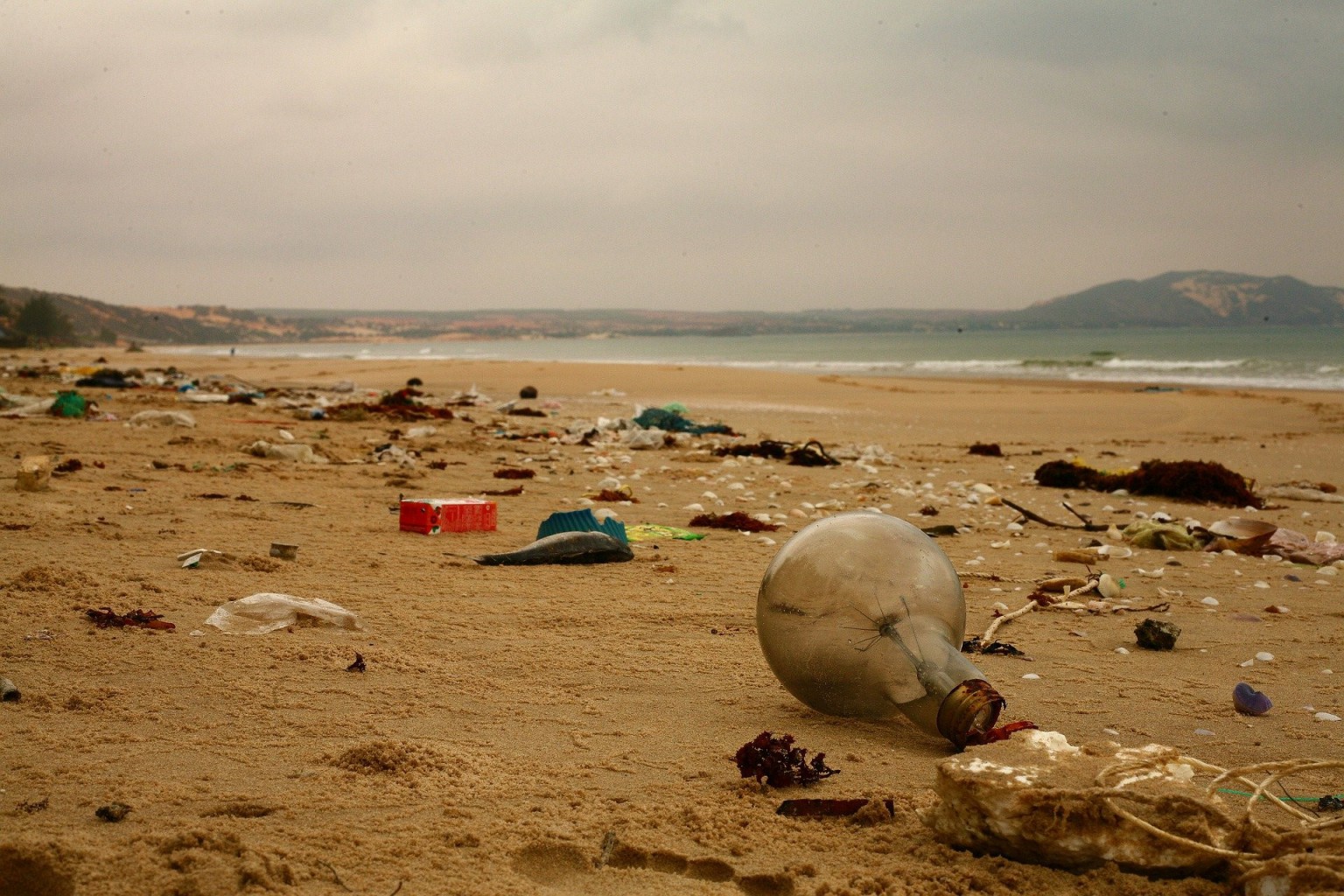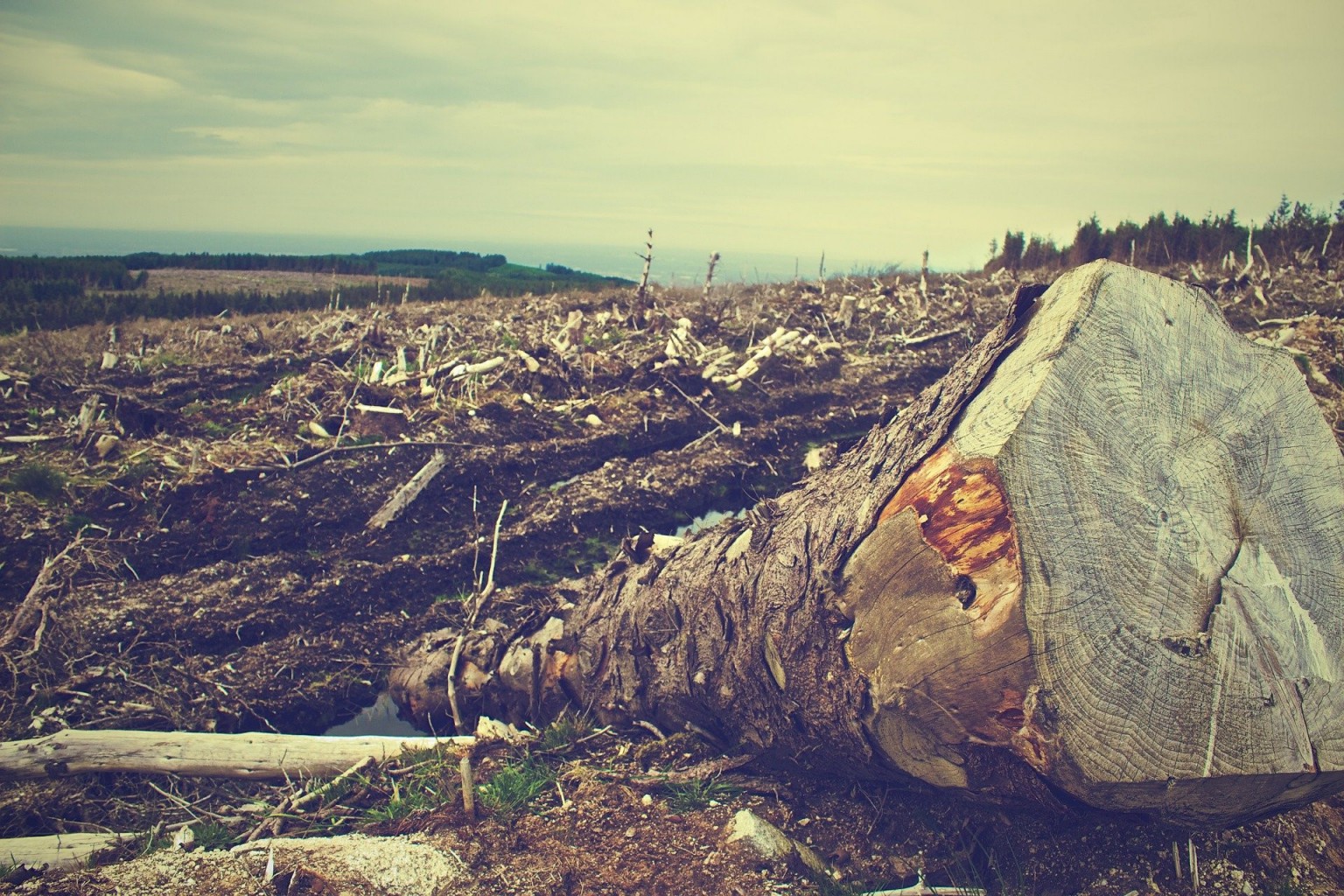Why Zero Waste is About More Than Just Plastic

When you hear about zero waste in mainstream media, the focus is usually on plastic waste. There is a growing awareness among the general population about the problems with plastic, and the massive plastic waste crisis we face on our planet.
Plastic waste is indeed an enormous problem. And it definitely deserves our attention. Plastic is now found in every ecosystem on earth – at the depths of the oceans, on the remote poles of our planet, and even within the human body. Plastic litter and micro-plastic pollution are a major concern for all life on earth. And may have untold consequences for human health in the years to come.
Plastic we are throwing away is ending up on our plates. And we don't yet know exactly how this is effecting our bodies. We do know that wildlife and ecosystems are suffering due to our reliance on this product. And of course, carbon emissions associated with this huge industry contribute significantly to our climate crisis.
But living a zero waste lifestyle is about more than just plastic. As well as reducing our plastic use, we also have to pay more attention to reducing other forms of waste in our daily lives. We should also think about:
- Energy waste.
- Water waste.
- The waste of land and natural resources.
- Food waste.
- The waste of human potential.
We need to think more about what waste really means. And about how we can avoid it is all its forms. We need to think beyond the waste that leaves our homes. We also need to consider the waste of all kinds that occurred throughout the lifecycles of the products we buy and use.
Energy Waste
If you are trying to live a more sustainable way of life, you may already have thought about ways to reduce energy use in your home. You may already have taken steps to take advantage of renewable energy sources.
But living a zero waste lifestyle also involves thinking very carefully about each and every item you buy and bring into your home. Undertaking a cradle to grave analysis of each purchase in terms of the energy is uses is crucial. Is the amount of energy used really justifiable? Have finite and polluting forms of energy been used, and if so, have they been wasted, or was it worth the cost?
Water Waste
As well as thinking about the lifecycle of a product in terms of energy use, it is also important to think about the use of fresh water. We often forget, when thinking about water conservation, about the water used to make the things we eat, wear and use in our homes.
Every time we make a purchase, we should think about whether it was worth the water cost. Was water used excessively? Was it squandered to provide the items you need? It is a good idea to think about whether you can make better choices to avoid water waste, wherever it may occur.
The Waste of Land and Natural Resources

Another form of waste that is often overlooked is the waste of land. Whenever we buy food, or anything that is made from natural crops, we need to ask ourselves whether the land used to grow it was wasted. Was the land degraded by the practice? Were ecosystems left worse for the growth or management of the land? Could the land have been put to better, more sustainable use for the good of people and planet?
Soil is precious, and it is being lost and degraded at an alarming rate. Forests and other ecosystems are also being lost, often due to consumer habits. Relying on mono-crop, non-organic agricultural systems means that you are not really living a zero waste lifestyle, even if you are very careful about the physical waste that leaves your home.
We all need to pay more attention to where our food and other products come from. If you eat meat, were the animals factory farmed? Even if they were not, were they fed on feed that contributed to the destruction of the world's forests?
Timber can be a sustainable choice for products and construction. But was the land used wisely? It the system truly sustainable? The answer may often be more complex than you might have imagined.
The waste of land and natural resources is not always easy and straightforward to ascertain. But the more we delve into the truth about where things come from and what they really cost, the better choices we can make.
Remember, reducing waste does not begin with what we throw away. It begins with what we buy.
Food Waste
When it comes to the waste that leaves our homes, plastic waste is obviously one of the key issues. But another very important area to consider is food waste.
You might be shocked to learn that around a 1/3 of all the food produced on our planet is lost or goes to waste. This amounts to around 1.3 billion tonnes each year. Food waste occurs at all stages of the food supply chain, from agricultural production, all the way through to individual households.
When food is wasted, it is not just a waste of the food itself. It is also a waste of the energy, water, land and other resources that went into producing it in the first place. These forms of waste are particularly concerning when we realise that:
- If food waste were a country, it would be the world's third largest greenhouse gas emitter (after China and the United States).
- A quarter of the world's fresh water supply is used in growing food that is not eaten.
- An area the size of China is used to grow food that is never eaten.
- Food waste also represents a massive financial loss. The value of food wasted globally each year is $1 trillion.
All this waste is particularly shocking considering the numbers of people who are hungry, or malnourished around the world. There are nearly one billion hungry people in our world, and all of those people could be fed on less than a quarter of the food waste from the US, UK and Europe.
Of course, reducing food waste is not just for individuals. Governments, farmers and businesses also have to play a role. But in the developed world, over half of all food waste takes place in households.
An estimated 95% of the 21 million tons of annual industrial food waste in the US is recycled, primarily for animal feed. But only 10% of the 52 million tons of food waste derived from consumer-facing businesses and consumers is recycled – so this is a much more pressing problem.
Of course, food waste does not pose the same problems as something like plastic, since it naturally biodegrades. Food waste is entirely preventable, and we can all play a role in eliminating it entirely. You should never have any reason to send any food waste away from your home. Composting at home is something we can all do (even if we don't have a garden). And this is the most sustainable way to deal with scraps and any foods that cannot be eaten or used in other ways.
The Waste of Human Potential
One final and rather interesting thing to consider when trying to live in a truly zero waste way is human potential. This includes both the potential of others around the world impacted by the choices you make and your own potential.
Truly sustainable choices are those that care for people as well as planet. If your choices have forced others to live in ways that limit their potential, this is another form of waste. This is one of the reasons why it is so important to look into the human cost as well as the environmental costs of the things you buy and use. Were workers mistreated to make the items you buy? Were they paid sufficient to maintain a decent quality of life? Was their health impacted? These are all important things to consider.
It is also important not to waste your own potential to generate positive change. Reach out to help others live a low waste lifestyle. Vote, and use your voice for good. Think about what you have to offer to the wider world, and how you can be a part of the transition to a brighter future. It is only when you truly make the most of your capacity to generate positive change that you can truly say that you are living a zero waste lifestyle.

 United States, EN (USD)
United States, EN (USD) Europe (EUR)
Europe (EUR) Netherlands (EUR)
Netherlands (EUR) France (EUR)
France (EUR) Spain (EUR)
Spain (EUR) United Kingdom (GBP)
United Kingdom (GBP)
